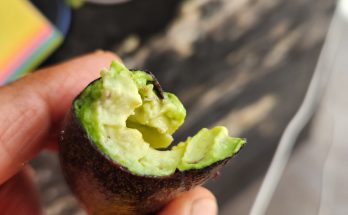By Bernardo Moreno
Ali Gua Gua is a multifaceted Mexican artist. We remember her playing guitar with the Mexican punk group Las Ultrasónicas in the 1990s, a benchmark in underground rock at the time. “Qué Grosero” (how rude) is possibly one of the group’s most iconic songs. Later, Gua Gua was a member of an Argentinian group called Kumbia Queers as a vocalist. That group fuses punk with cumbia and tropical music. The nods to songs by internationally recognized artists are very interesting and fun, distorting them to deliver a cumbion that always makes us dance. Gua Gua currently has a couple of albums out as a soloist: the first, Forever Alone, shows an electronic punk facet, and his latest album is Menospausa.
Gua Gua’s second album makes us move our hips. The album also has great collaborations. Opening with the song that gives the album its name, we immediately realize that it reflects the first album. It leaves punk a bit aside and fully focuses on hip hop with brief words, and we glimpse menopause in a comical way.
In the lyrics of Menospausa’s second song we see the new flow: «Ali Gua Gua is the jarochilanga, from the Latino tower to the mocamba, kill the changa that’s my job. This is not Miami, Fernanda says.» I think it is the most significant song on the album, although it is risky to say that. On the one hand, it is a very chilanga salsa, while on the other, a very lively son jarocho. The lyrics refer to Gua Gua, who is—like many of us—a follower of Fernanda Melchor, a great contemporary writer from Veracruz.
In short, that song clearly has a lot of substance. If we had to rate the tracks with stars and the maximum was five, that is what I would give it. “Ay Ke Kumbion” has the collaboration of San Miguel’s beloved Son Rompe Pera and its great marimba from the portals of downtown Veracruz, as well as Mare Warning with its well-armed lines of rap. “Cumbia is the new punk,” says the shirt I bought at the last Son Rompe Pera concert I attended.
With this album, which is a true gem, we find Cuban rumba rhythm mixed with hip hop in the song by Flota Maravilla. I want to share some of the lyrics that are—not to be redundant—wonderful: “My well-served bag, my well-frozen loggerhead, today I don’t feel raw, but I woke up tattooed. I don’t even know how I got there, I’m already forty, but I feel like I’m a hundred. They gave me Arjona’s, they didn’t hesitate to spend. They call me old wolf when I go to the boulevard, I got my diploma there on the boulevard. I miss Veracruz, I miss my friends, some are thugs and others are executives. That is why I sing to the dead and the living, to those who migrated and to the disappeared.” More great verses follow. Wonderful!
In this song, the collaborator is El Patillas. With these few examples, we should be able to intuit that musically it is at the top with urban rhythms, hip-hop, rumba, salsa, electronic, and, of course, cumbia. Some other great collaborators in Menospausa are Asagi Sundo with her electrocumbia, Morada with her strident rap, and Miss Bolivia with her sonorous “riddim.” The producer is DJ Rambon. To sum up, the fundamental and primordial characteristic of this latest album by Ali Gua Gua is good humor and impudence.We have the opportunity to see Ali Gua Gua live, thanks to La Romería, on June 17 and 18 at the Pavo Real del Campo Vineyard in the Sosnabar community, here in San Miguel de Allende. She will present the album on Saturday the 17th, but she will play both days as DJ Guaguis. It will be as free as the air. See you there!




